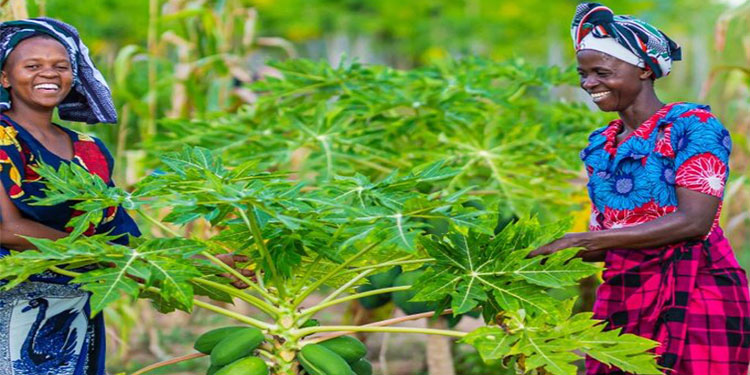
Smallholder farmers, according to the government, are critical to altering food systems, but they lack the resources to do so.
Prof Adolf Mkenda, the Minister of Agriculture, noted that low farmer productivity leads to a shortage of food, particularly edible oil and other cash crops in the country.
Prof Mkenda said the government is working diligently to turn things around during the introduction of Tanzania Research Agriculture Institute (TARI) Nzuguni hub technology, which will bring agriculture services closer to farmers.
Minister Mkenda stated that the government will continue to expand agriculture development funds on a short, medium, and long-term basis in order for the sector to grow at the appropriate rate.
Prof Mkenda believes that instead of focusing on slogans, the time has come for the agriculture sector to do meaningful research that will considerably boost the sector’s growth.
“The government recognises the value of research and has increased the ministry’s budget from 7.3 billion to 11 billion in the fiscal year 2021-2022,” Prof Mkenda said, adding that quality seeds must reach farmers.
Dr Geoffrey Mkamilo, TARI Director General, said the newly established centre will allow farmers to access the best seeds developed by TARI as well as other services without having to wait for farmers’ day, which is held once a year.
“This centre will give services all year,” said Dr. Mkamilo, “and we will have a wide variety of crops that are performing well in the central zone.”
The centre, which is located in Nzuguni, also known as Nane Nane in Dodoma, will perform seed research and provide training to extension officers, farmers, and other stakeholders on various technologies throughout the year.
The Centre will receive challenges from stakeholders in the value chain of the goods generated and will look for relevant solutions, such as mentoring and training.
He emphasized that TARI helps traditional farming become more productive and, if feasible, commercialised.
Agriculture has remained the mainstay of Tanzania’s economy. About 66.3 percent of Tanzania’s workforce is employed in the sector. The private sector is responsible for a large portion of agricultural production.
According to the third Five-Year National Development Plan (FYDP III), agriculture accounts for around 27% of the country’s GDP and 24% of overall exports.
The government wants to improve the use of science, technology, and innovation in agriculture to boost production and yields.
The plan calls for the right application of research and technology to raise yields, lower food prices, reduce risks, and increase profits, all of which benefit citizens through the agricultural sector’s integrated system.
FYDP III will focus on increasing production and efficiency in the agricultural sector.
Maize, rice, cotton, cashew nut, tea, coffee, tobacco, sisal, palm, wheat, soybean, cocoa, cassava, sugarcane, horticulture, and sunflower are among the prioritised products.
Enhancing strategic agricultural research and development, expanding sustainable water and land use management through integrated land use planning, and improving irrigation systems, including the construction of water reservoirs, will be key interventions.
Enhancing productivity in strategic crop production, strengthening the competitive agricultural value chain, and commercialization are some of the others.
It also aims to promote the use of information and communication technology (ICT) in cooperatives, commercial agriculture, extension services, and the introduction of new crop management techniques.
